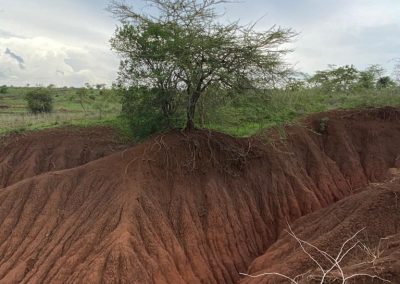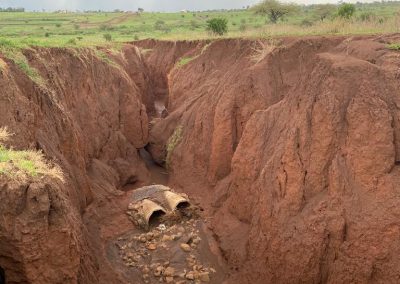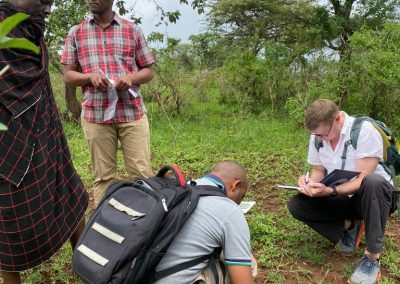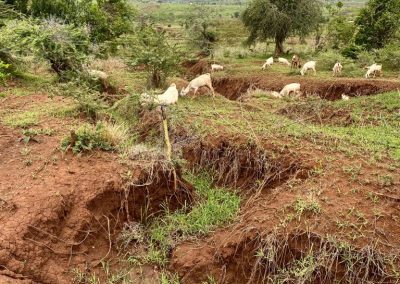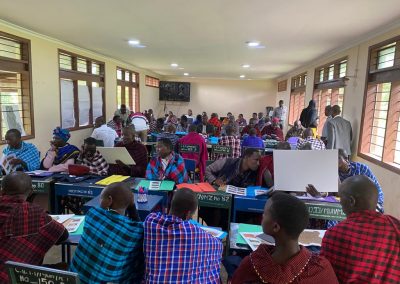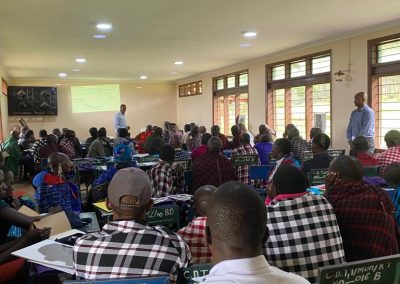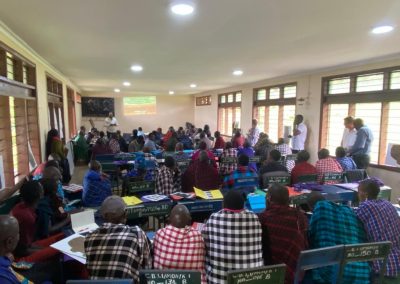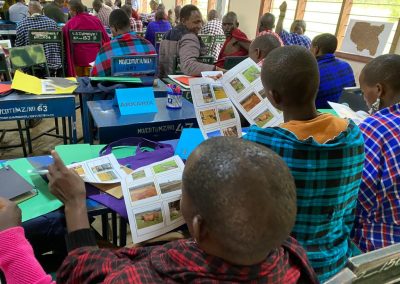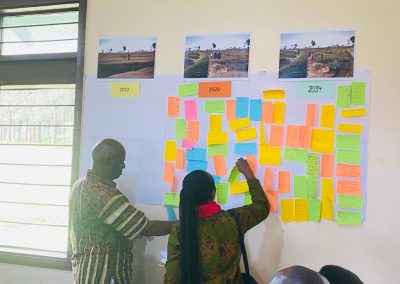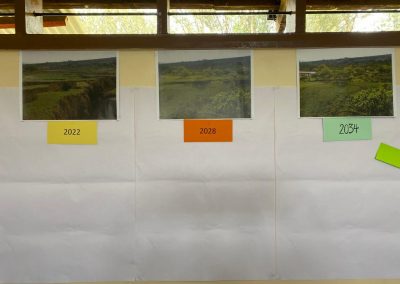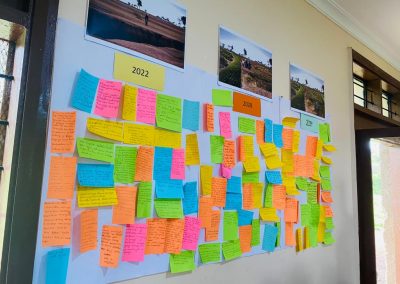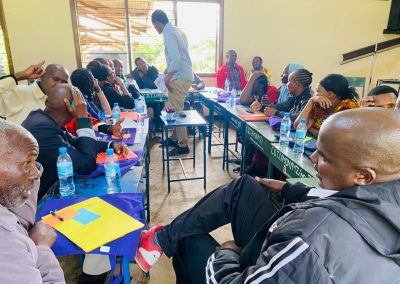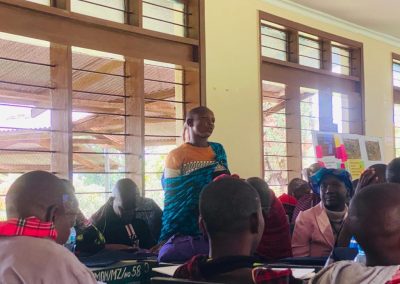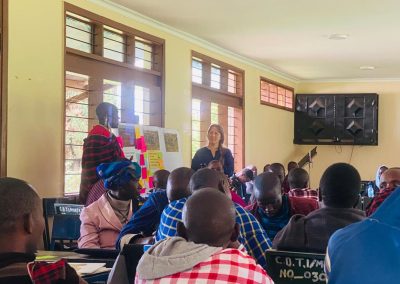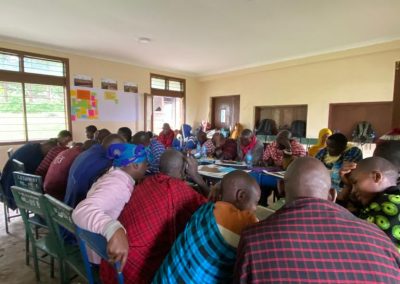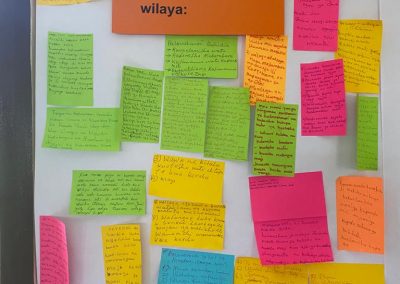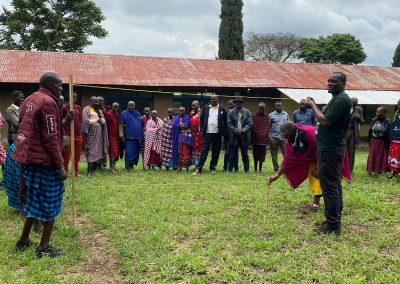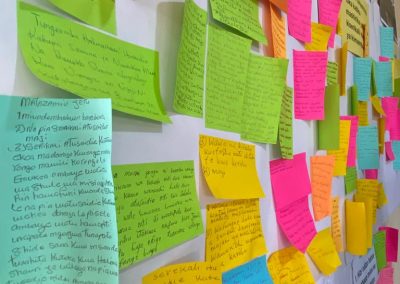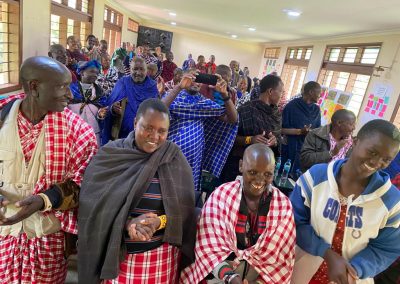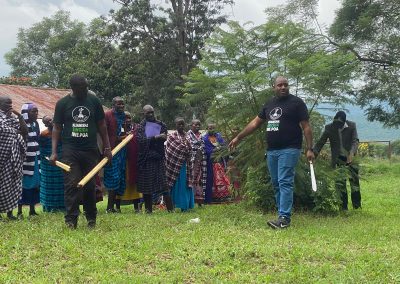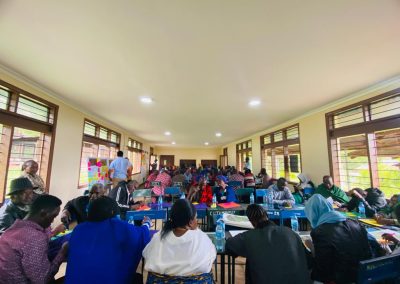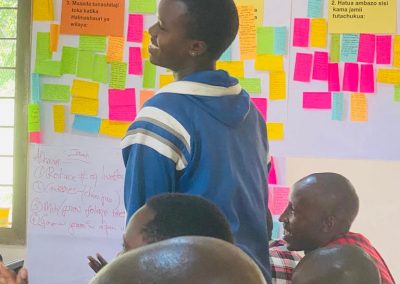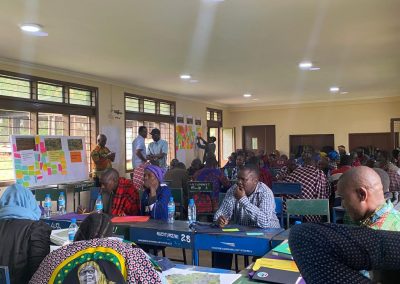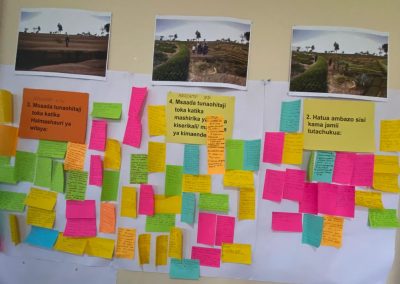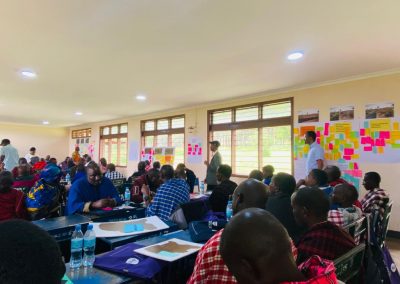Mona Nasseri’s community-led research in Tanzania
Dr Mona Nasseri, programme lead for Ecological Design Thinking at Schumacher College, is currently on a research trip in North East Tanzania working on a project called Jali Ardhi with the local community as they try to find appropriate ways to address soil erosion, one of the main causes of land degradation in the region. Mona has sent a summary of the project which we’ve published below, and we’ll post further pictures and updates over the next week on this page.
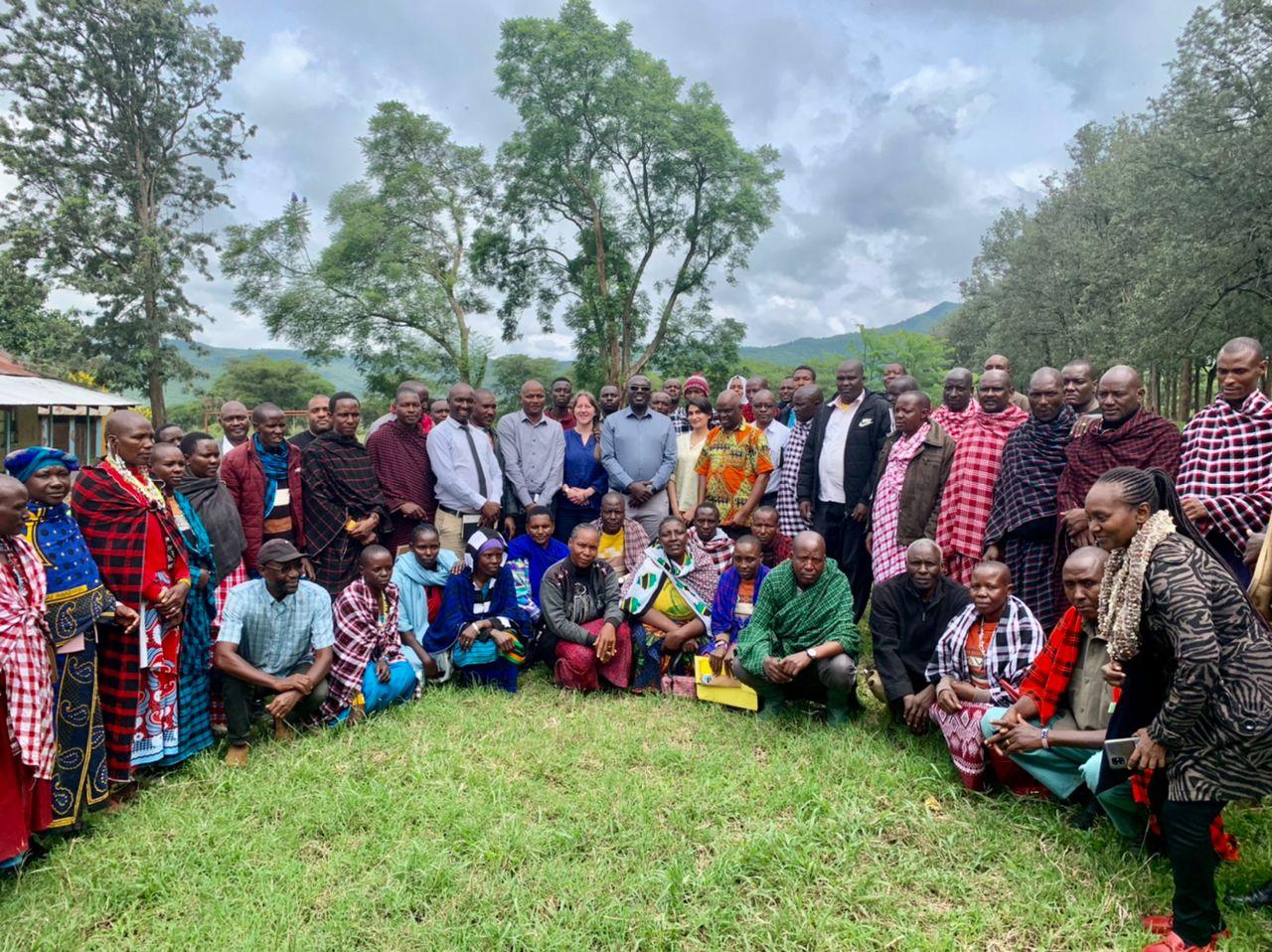
Group picture with the District Council Commissioner, Monduli district of Tanzania
Jali Ardhi means care for the land in Swahili language. It is the title of an interdisciplinary project started in 2017. Since then the project has brought together local people with researchers and practitioners from the University of Plymouth (lead institution), Schumacher College, Nelson Mandela African Institute of Science and Technology and a number of local NGOs around the problem of soil erosion in North East Tanzania.
Jali Ardhi aims to facilitate community-led approaches to building social and ecological resilience in response to the impacts of Climate Change. The study is based in the Monduli district. Land degradation has turned into a major concern here. Farmers and pastoralists have been losing crop and pasture lands to erosion. This region is part of the catchment area of the Lake Manyara where the eroded sediments have been accumulating, causing changes to the ecosystem and threatening biodiversity. Climate change and practices related to livelihood are amongst the factors contributing to this wicked problem.
Over the past 5 years, a friendly and effective collaboration has emerged between the team and communities from three Maasai villages in Monduli. The scientists have been helping with soil analysis and landscape assessment, social scientists have been getting local perspectives on issues, and the artists have been communicating the problem through photography. As the Ecological Designer, my role is to engage the local community in the process. I have been designing workshops to co-create solutions and make sure the local wisdom is the major driver when it comes to solving local problems.
After two years, we are very excited to be able to go back to Monduli to conclude the current phase of the project (on Sustainable Land Management) with another participatory workshop. This time we’ll explore problems and opportunities around water and water harvesting.
Live updates from Mona
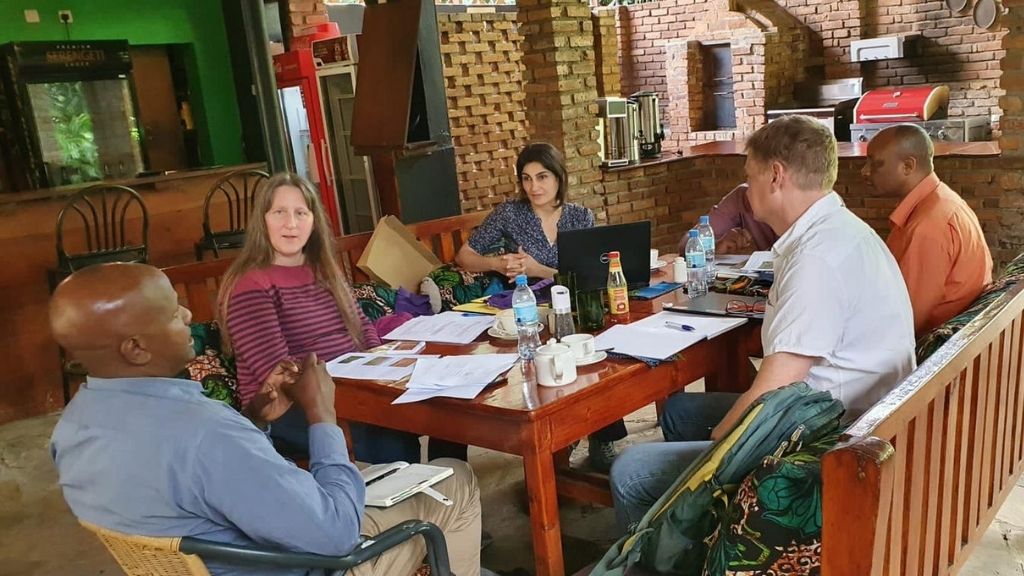
Monday, 21 February
We had our first team meeting with colleagues from Nelson Mandela African Institute of Science and Technology (NMAIST) shortly after arriving to Tanzania on Monday afternoon. A review of the stakeholder workshop was the main subject of discussion. Due to the storm in the UK and flight cancellations , we lost 2 days of field work which affected our initial planning. With the support and helpful feedback from the Tanzania colleagues we managed to redesign the workshop.
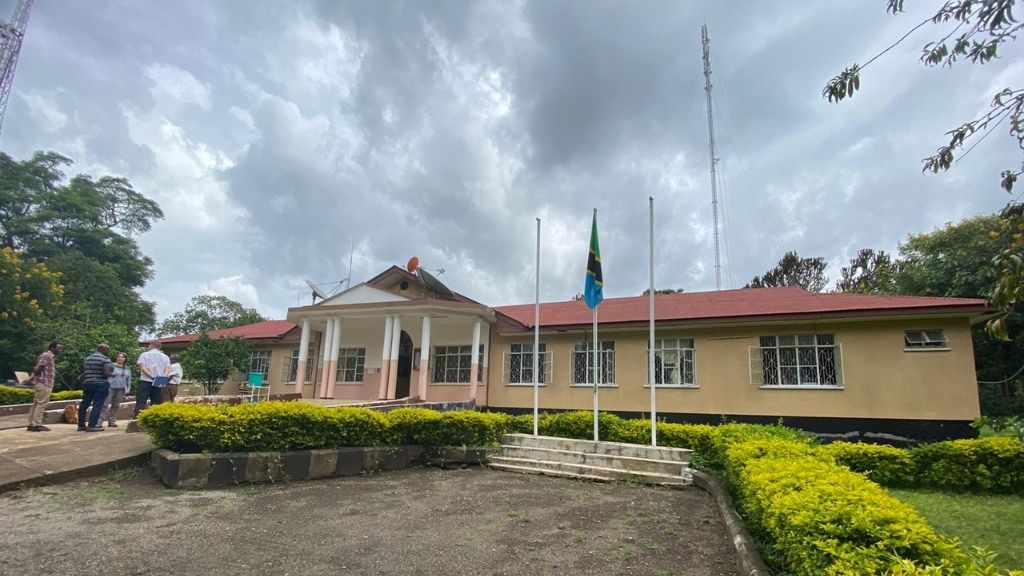
Tuesday, 22 February (morning)
Tuesday morning started with a visit to the Monduli District Council where the team was met and welcomed by the Council Commissioner. He warmly endorsed the project and appreciated its interdisciplinary and participatory approach.
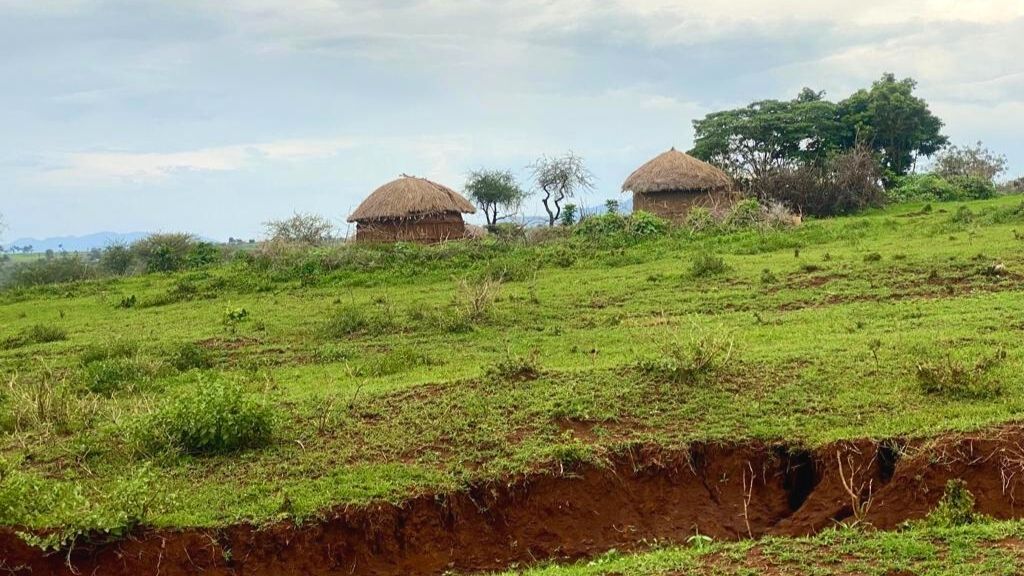
Tuesday, 22 February (Afternoon)
The rest of the day was dedicated to landscape observation and collecting soil samples for carbon analysis.
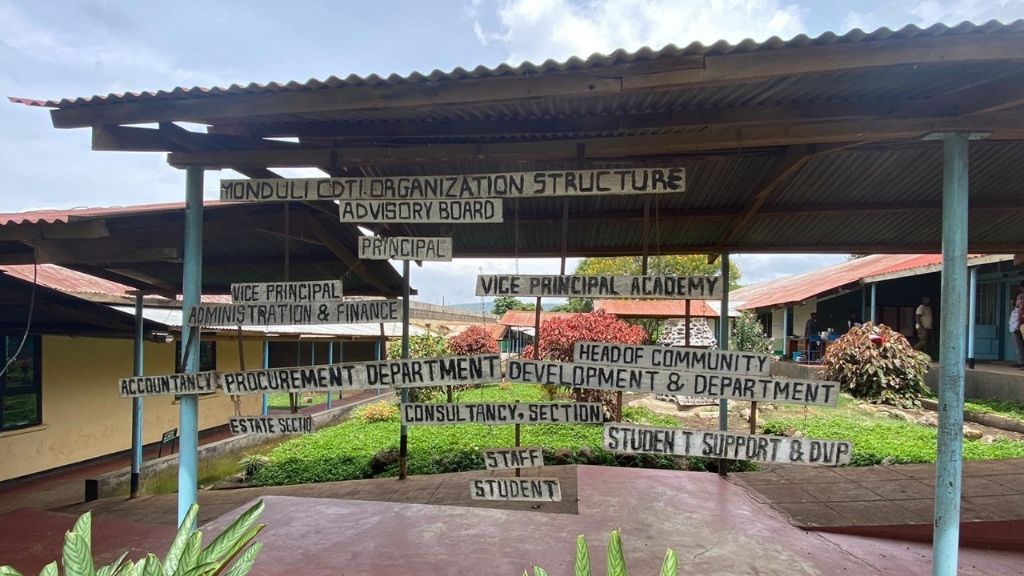
Wednesday, 23 February
We successfully ran the first day of the stakeholder workshop this morning and afternoon at the Community Development Training Institute in Monduli. 75 participants from the three villages of Arkaria, Emaraete and Lendikinya, three local NHOs (LEAD, Just Dig it, Eco and TNRF) and representatives of the District Council joined us and enthusiastically engaged in discussions and activities.
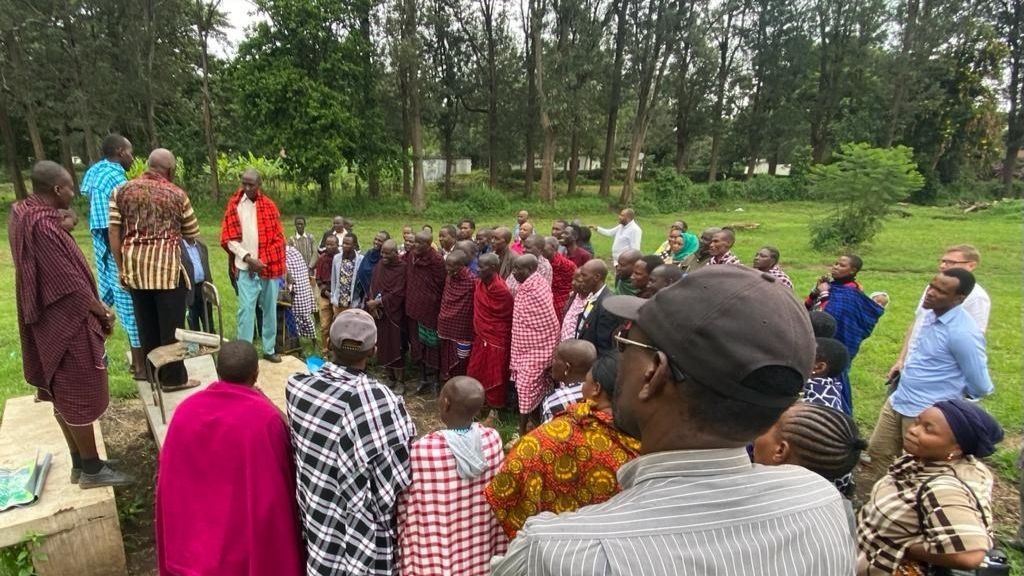
We began the day by short talks by local NGO reps sharing some land management, farming, water harvesting and soil restoration techniques. Participants were then invited to discuss some of these techniques with others from the neighbouring villages.
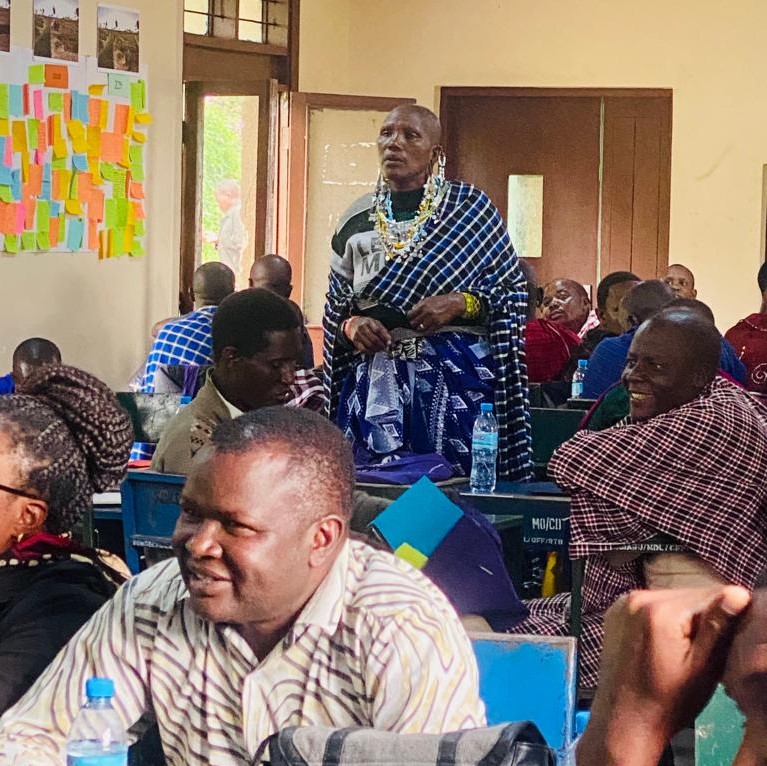
The highlight of the day was the visioning exercise. Community members were asked to think and share what they want to see in their village in 12 years from now. What would the livelihood, the land, the water system be like in their community by 2034? In order to materialise that vision, what needs to be done in the next 6 years and what actions could they take right now?
The workshop concluded with a few questions followed by a blessing and gratitudes from us and the participants. The second and final day of the workshop will be held tomorrow.
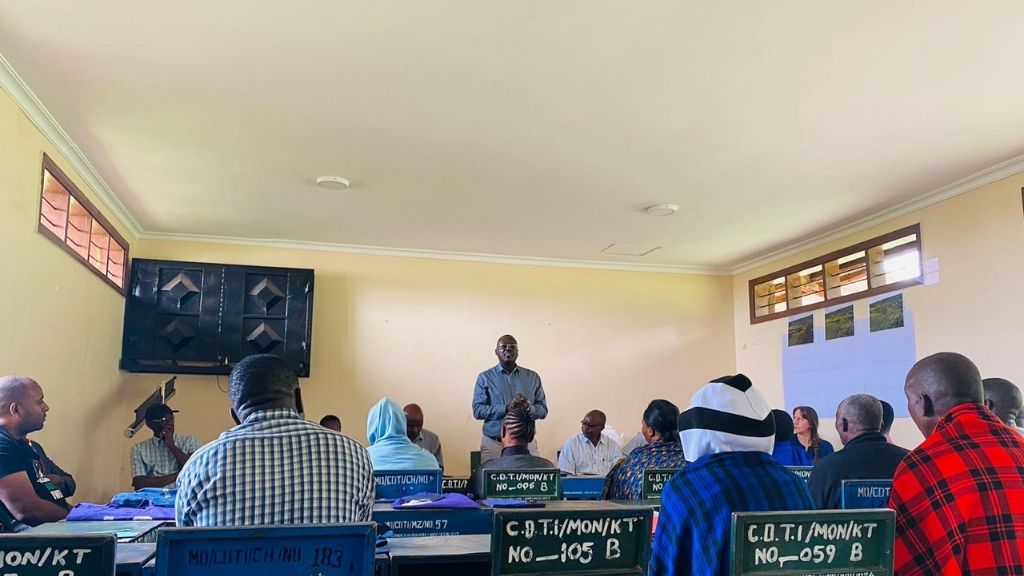
THURSDAY, 24 FEBRUARY
The District Council Commissioner joined and gave a talk which raised Jali Ardhi’s profile even more. It’s rare to have an official at this level personally joining and endorsing a project in this region.
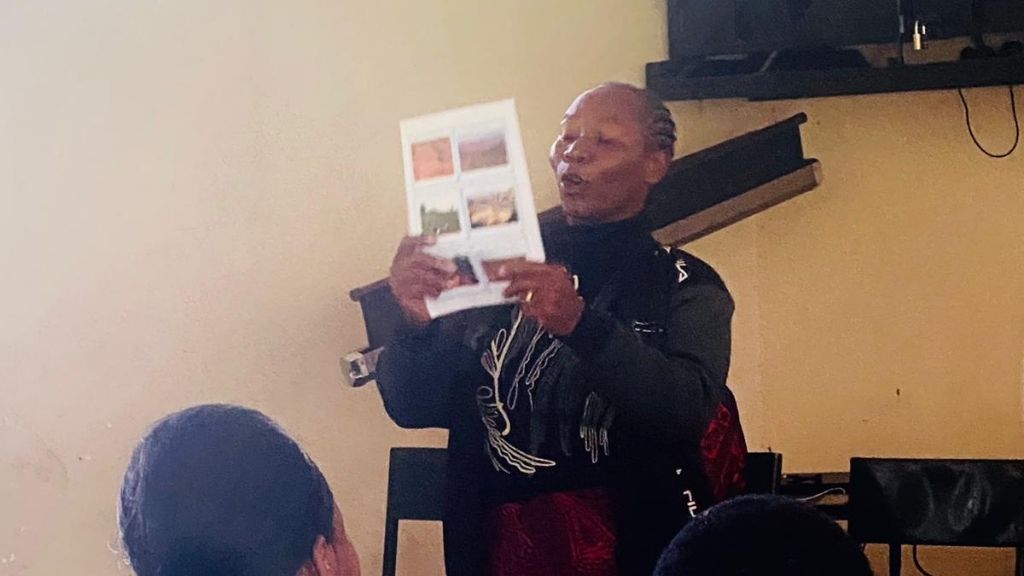
We heard from some local champions about their sustainable land management practices, their challenges and perseverance.
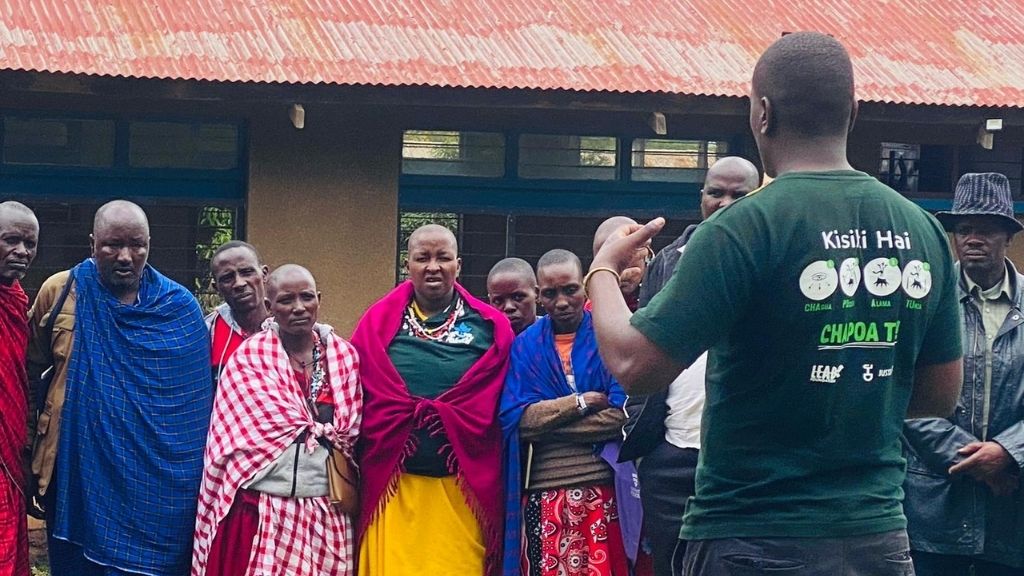
We then moved to the first exercise of the day which was about identifying the community’s expectations and requests from the local authorities and NGOs. This included community specific discussions and individual opinions which were recorded on post-it-notes.
After that the participants moved outside for a short training session on water harvesting and soil restoration delivered by LEAD, an NGO which is becoming a Jali Ardhi partner.
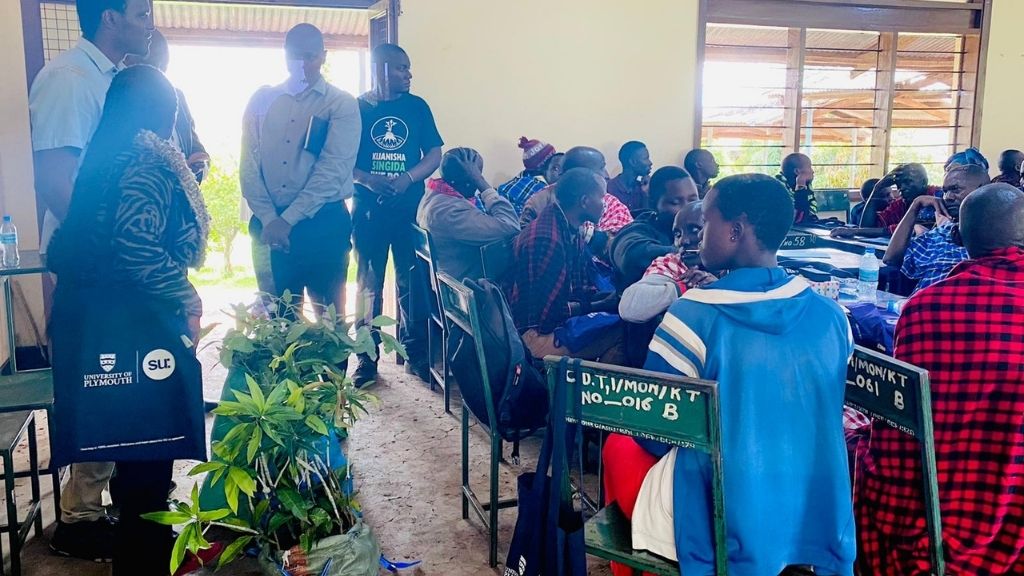
The exercise continued after lunch by two important questions: what would each community and individual pledge to do after this workshop.
We clearly communicated with the communities throughout that our purpose is to co-design solutions and for that the communities need to take the lead and ownership of the process of change. The purpose of the workshop is to empower people and communities not to create dependency or introduce solutions.
After sharing appreciations and gratitudes. Participants were gifted a native seedling to take home.
If you are interested in studying with Mona on the MA Ecological Design Thinking at Schumacher College, we are currently accepting applications for the next iteration of the course starting in September. The early application deadline is on 21 March 2022 and there are bursaries and a scholarship available to applicants submitting before this date. Find out more and apply via the button below.

Dr Mona Nasseri
mona.nasseri@schumachercollege.org.uk
Mona is Head of Research at Schumacher College and Programme Lead for MA Ecological Design Thinking. She joined Schumacher College in 2014 and been involved in the delivery and development of the programme since its inception.
Read More

